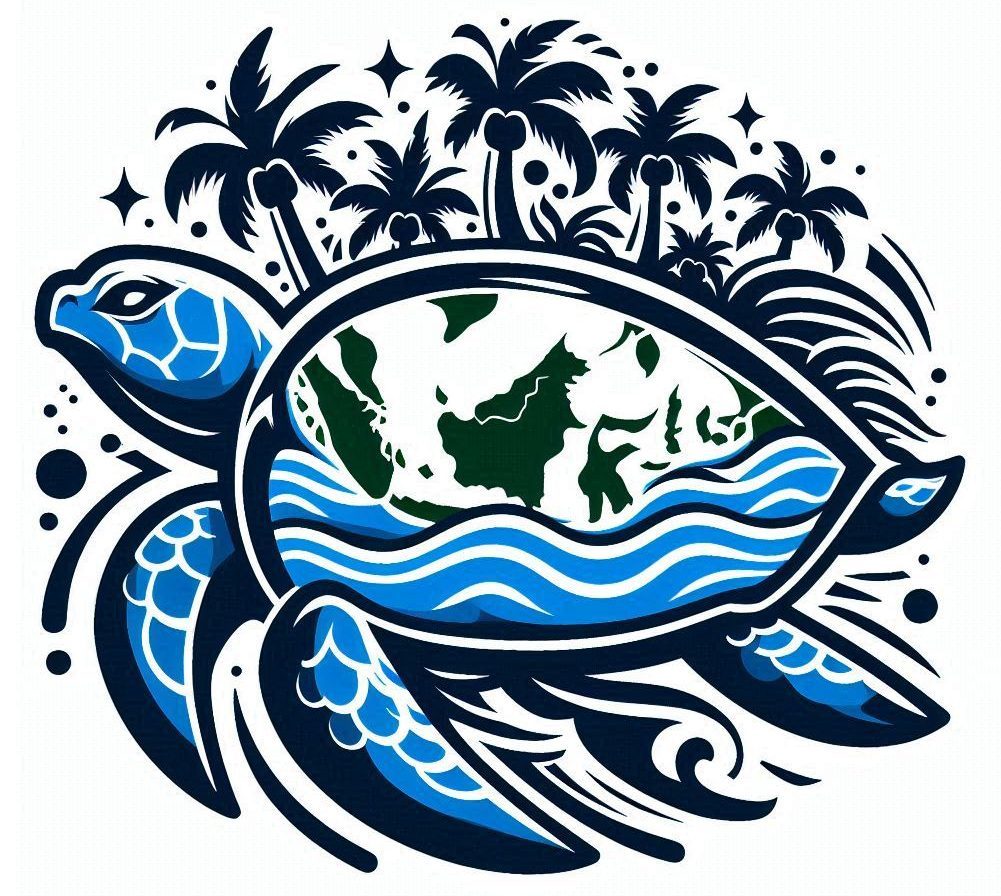Sea turtles, revered as ancient marine creatures, play a vital role in the ecological balance of Indonesia’s marine ecosystems. Recognizing their significance, Indonesia has implemented various measures to protect these majestic creatures from threats and ensure their survival. Here are several reasons why sea turtles are protected in Indonesia:
1. Biodiversity Conservation:
Indonesia boasts some of the world’s most diverse marine environments, home to six out of seven species of sea turtles globally. These species, including the iconic Green, Hawksbill, and Leatherback turtles, contribute to the rich biodiversity of Indonesia’s seas. Protecting sea turtles helps preserve the ecological integrity of marine ecosystems and maintains the intricate web of life in Indonesian waters.
2. Ecological Role:
Sea turtles play a crucial role in maintaining healthy marine ecosystems. As omnivorous grazers, they help control seagrass beds and sponge populations, promoting biodiversity and supporting the overall health of coral reef ecosystems. Additionally, sea turtle eggs and hatchlings provide nutrients to coastal habitats, contributing to nutrient cycling and ecosystem productivity.
3. Economic Importance:
Sea turtles contribute to Indonesia’s economy through ecotourism, fisheries, and cultural heritage. Tourists flock to Indonesia’s coastal regions to witness sea turtles nesting and hatchlings making their journey to the sea, generating revenue for local communities. Furthermore, sustainable fisheries management practices that protect sea turtles help maintain fish stocks and ensure the livelihoods of coastal communities dependent on marine resources.
4. Traditional and Cultural Significance:
Sea turtles hold profound cultural significance for many indigenous communities in Indonesia. They are revered as symbols of wisdom, longevity, and spirituality, with traditional beliefs and customs centered around their conservation and protection. By safeguarding sea turtles, Indonesia honors its cultural heritage and preserves ancestral knowledge passed down through generations.
5. Threats and Conservation Challenges:
Despite their ecological and cultural importance, sea turtles face numerous threats in Indonesian waters, including habitat degradation, illegal poaching, bycatch in fisheries, pollution, and climate change. Conservation efforts aim to address these threats through habitat protection, law enforcement, community engagement, research, and international collaboration.
Conclusion:
Protecting sea turtles in Indonesia is not only a conservation imperative but also a moral and ethical responsibility. By safeguarding these iconic marine species and their habitats, Indonesia ensures the sustainability of its marine ecosystems, supports local livelihoods, and upholds its cultural heritage for future generations to cherish and enjoy. Through concerted efforts and collective action, Indonesia remains committed to the preservation of its precious sea turtles and the marine environments they inhabit.
